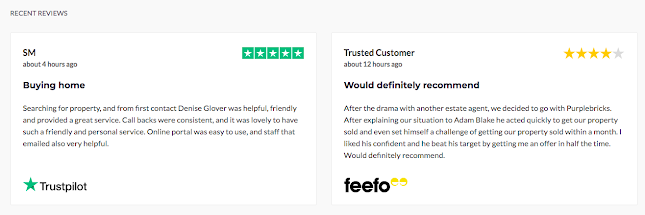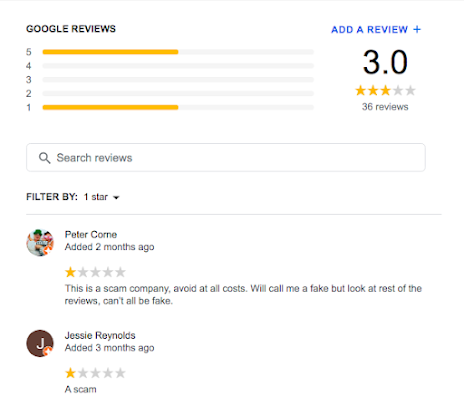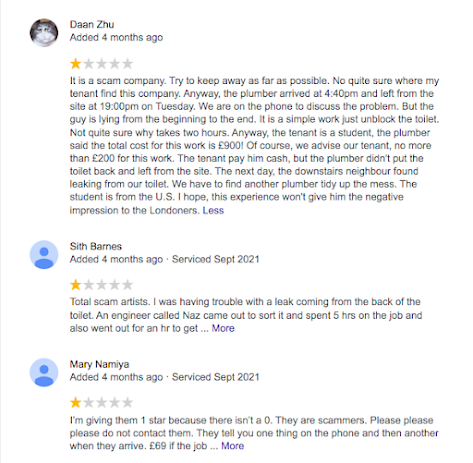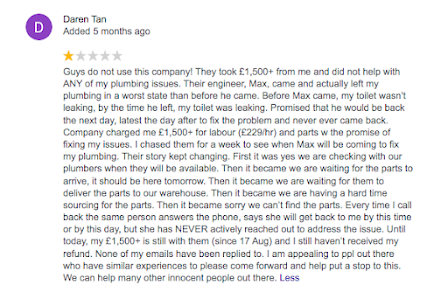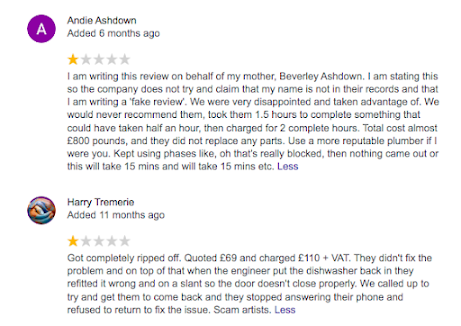It's that simple: when a business gets its review management right it should expect it to pay significant financial dividends (more below). But there are four key rules that all businesses need to follow if reviews are to drive revenue without compromising the business's legal integrity and its ultimate long-term reputation. They're all straightforward, but 'break' one of the four and your review management will ultimately* fail.
*Ultimately: far too many businesses have either taken a short-term view on Google reviews - get as many as possible, all positive, irrespective of the law - or they have been sold a solution that will ultimately result in harm to their brand, often by diverting reviews away from Google to a review site, where their reviews are increasingly invisible to their prospective customers.
Marketers need to be planning at least a decade ahead where review management is concerned and should be able to answer the question 'Where do we want to be with regard to reviews and what impression do we want to be creating in 3, 5, 7 and 10 years time?' with confidence.
Rule 1
Obey the law.
It is rare to come across such hard evidence as Points 1. and 3. on this Trustpilot/Yell notice to staff, But we estimate that well over 50% of businesses have some such demonstrably illegal scheme in place, whether focussed on Google or a review site (or both). The CMA has powers to confiscate computer equipment and email records, and it will use them. And if you knew a competitor was doing this?
Very few businesses currently do - obey the law, that is. There's a simple test: if a business does any of the following...
- Invites selected customers to write reviews
- Controls the timing of the review
- Rewards staff for attracting positive reviews
- Rewards customers for posting reviews
- In any other way 'filters' customers to eliminate those less likely to write a favourable review
In addition, if the business pre-qualifies those it wishes to invite to post a review to Google, a practice known as gating, it will be in breach of Google's terms of business (customer surveys are a popular mechanism here). If found to be doing so by Google the business will have all its Google reviews deleted without recourse to appeal.
The single most frequent reason given for this non-compliance is 'but our competitors do the same.' No defence, obviously.
So: in order to obey the law and be confident of protecting its hard-won reputation a businesses must find a solution that allows all of their customers and other stakeholders* to write a review direct to it rather than straight to Google. It must then publish all those reviews on its own website (having had them moderated - see Rule 2 below), and then have as many of those as is practicably possible copied by the reviewer across to Google.
*other stakeholders: it is a common misconception to assume only paying customers will write a review to Google; we estimate that up to 20% of negative reviews are written by people where the experience they are reporting happened before any financial transaction took place, (think of the disappointed potential tenant or failed purchaser of a property - or the classic example of the prospective patient frustrated by their dealings with the doctor's receptionist). It is important that businesses give such people a route to vent their dissatisfaction before they resort to Google.
Rule 2
Adopt a moderated solution.
This single review, on a review site with far less visibility than Google reviews, caused enquiries to the business in question - a firm of solicitors - to drop by over 40% overnight. Here's a link to the full case history including the judge's summary of findings in the subsequent court case and an analysis of the financial impact on the business which led to the award of damages
We often meet businesses that are sanguine about the possibility of attracting damaging negative reviews, until they actually receive one. Moderation cannot eliminate inaccurate, misleading or even plain fake reviews but it will go a long way - as far as is possible in today's review and compliance environment - in doing so. If you ask any one of our clients about their experience with review management they will invariably rank moderation in the top two advantages, alongside the positive impact on revenue flows that is the object of this article (see below). Moderation eliminates the fear of the negative consequences of compliance.
So: be aware that a single well-written but factually inaccurate or potentially misleading review can do significant harm to business flows. Far better allow dissatisfied or disgruntled customers to post a review to your own website where it will be subject to moderation than simply hope they won't post direct to Google.
Rule 3
Host your own reviews on your own site.
Yours, not Google's or any other review site's. Why? Because by inviting reviews to your own site you will achieve the following...
- you will be able to have them independently moderated pre-publication. It's the only way to prevent factually inaccurate and/or misleading reviews appearing there and on Google
- You will be giving potential customers who visit your site, and may have missed or bypassed your glowing reviews on Google, a reassuring point-of-reference that almost all savvy consumers actively seek out these days
- You will own your own reviews: they are a valuable asset and you should not be giving that asset away unless the circumstances are exceptional - getting the reviews across to Google qualifies as 'exceptional'; having reviews on a site like Yelp, Trustpilot or Feefo does not
So: Allow customers to post reviews direct to your own website; then have them independently moderated and invite the reviewer to copy the review to Google (HelpHound's software sends this invitation automatically).
Rule 4
Embed that solution throughout the business and all its processes.
Review management needs to become part and parcel of the daily routine of your business, alongside all your other sales and marketing practices and CRM.
Review management is no longer a 'nice to have' add-on. It has to be core. Ask the key question: do we want to be the first of our competitors to see the benefits of professional review management or the last? Engage all management and staff and ensure review flows, to both your own website and Google, are constant and consistent. Invite reviews on your website, invite reviews by email, tell customers in face-to-face contacts that they will be invited to write a review.
So: test it; proof of concept is a challenge we relish. Any respectable solution won't tie your business in or cost a fortune (HelpHound has no contract periods - and a client once said 'it's a round of coffees on the last Friday of the month' which is an apt a cost analogy as any). Use all the resources and experience a service* like HelpHound can provide to maximise results. And monitor those results carefully - through your monthly Google My Business report, website metrics and staff feedback.
*service: most review solutions are purely software driven: the sales person is the last point of human contact; at HelpHound the sale is just the beginning of our contact with your business. Our most successful clients are often those that pick up the phone to us the most.
Driving revenue
If you obey these four rules your review management will not only become immediately compliant with UK law, it will have a rapid and sustained impact upon your inbound enquiries, through Google search and through your own website...
Just one example of a company's Google My Business report from the month after full implementation: we have seen these numbers - the percentage rises in calls and website visits - go as high as three figures
...and will then go a long way to providing the kind of support described by this customer when acting as an aid to conversion in the sales environment:
In summary
Your business has nothing to lose, and everything to gain from partnering with HelpHound...
- more leads through Google - quantifiably
- more leads through your own website - quantifiably
- enhanced SEO - Google gives you credit in local search rankings for hosting reviews
- the reassurance of employing a moderated solution
- the reassurance of employing a compliant solution
- excellent support in the close - from both your score and individual reviews
- a constant flow of wonderful marketing and PR material
- a boost for staff morale
...all with no contract period.
Further reading
- Review denial: not yet engaged - or even consciously decided against engaging with reviews? This is a must-read article
- Going it alone - inviting reviews to Google: why this is a high-risk long-term strategy
- Review sites: the likes of Yelp, Trustpilot and Feefo have now been overtaken by moderated Google review solutions: far more visibility, more credibility and with a far longer shelf life. It's also now recognised as best practice to own your own reviews - don't give them, and their value, away to a review site
- Results: expanding upon the 'Driving revenue' section above
- Benefits: a post from which this article was distilled, including screenshots of client websites and Google searches
- Index for 2022: this blog, running as it does for over ten years, contains nearly 1,000 articles - it can be interesting to jump back five years or more to see if our advice then was correct! - but the articles in this index are the ones that potential clients will benefit from reading the most






